Frances Gillis-Webber
A Review of Multilingualism in and for Ontologies
Oct 06, 2022
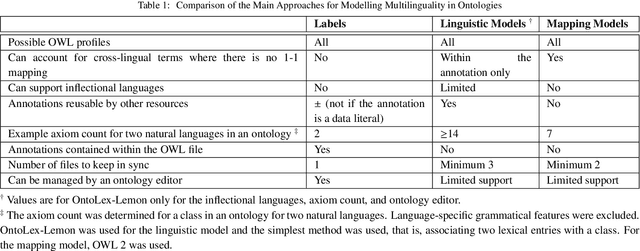
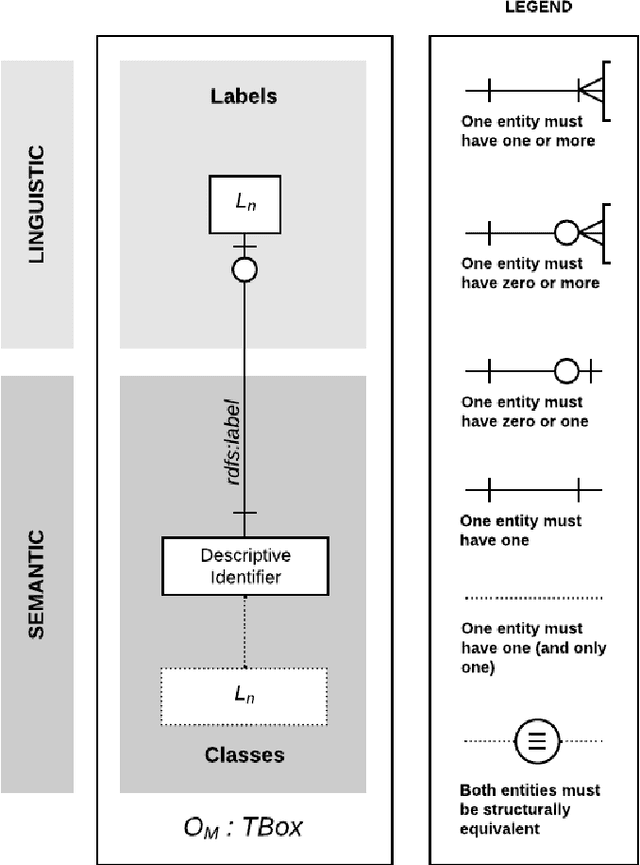
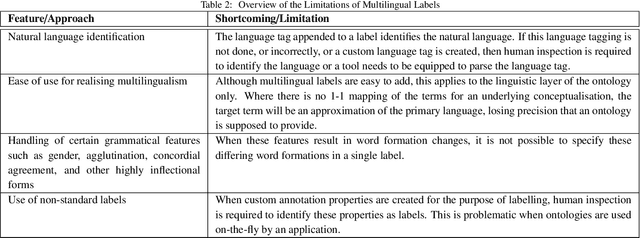
Abstract:The Multilingual Semantic Web has been in focus for over a decade. Multilingualism in Linked Data and RDF has shown substantial adoption, but this is unclear for ontologies since the last review 15 years ago. One of the design goals for OWL was internationalisation, with the aim that an ontology is usable across languages and cultures. Much research to improve on multilingual ontologies has taken place in the meantime, and presumably multilingual linked data could use multilingual ontologies. Therefore, this review seeks to (i) elucidate and compare the modelling options for multilingual ontologies, (ii) examine extant ontologies for their multilingualism, and (iii) evaluate ontology editors for their ability to manage a multilingual ontology. Nine different principal approaches for modelling multilinguality in ontologies were identified, which fall into either of the following approaches: using multilingual labels, linguistic models, or a mapping-based approach. They are compared on design by means of an ad hoc visualisation mode of modelling multilingual information for ontologies, shortcomings, and what issues they aim to solve. For the ontologies, we extracted production-level and accessible ontologies from BioPortal and the LOV repositories, which had, at best, 6.77% and 15.74% multilingual ontologies, respectively, where most of them have only partial translations and they all use a labels-based approach only. Based on a set of nine tool requirements for managing multilingual ontologies, the assessment of seven relevant ontology editors showed that there are significant gaps in tooling support, with VocBench 3 nearest of meeting them all. This stock-taking may function as a new baseline and motivate new research directions for multilingual ontologies.
Knowledge Graphs Evolution and Preservation -- A Technical Report from ISWS 2019
Dec 22, 2020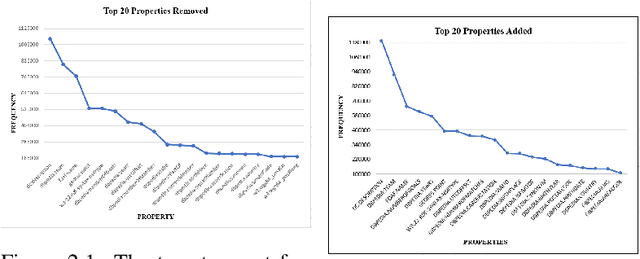
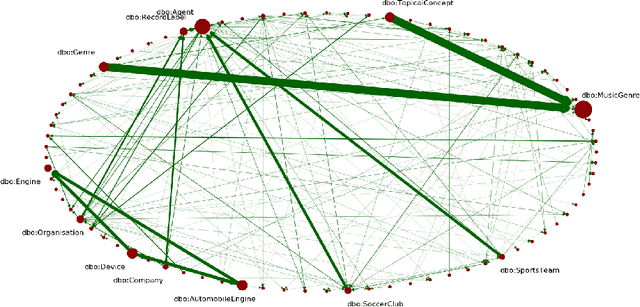
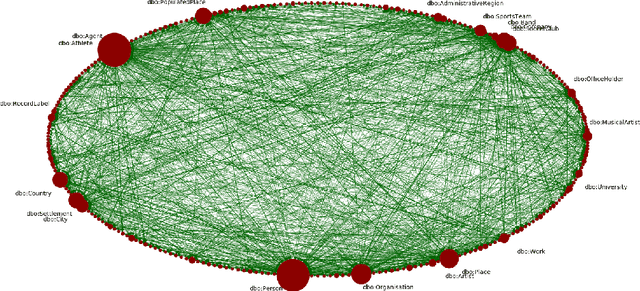
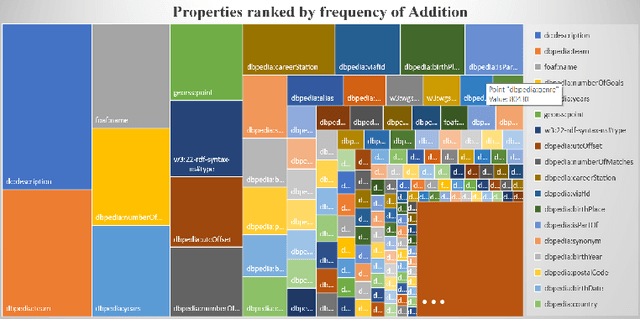
Abstract:One of the grand challenges discussed during the Dagstuhl Seminar "Knowledge Graphs: New Directions for Knowledge Representation on the Semantic Web" and described in its report is that of a: "Public FAIR Knowledge Graph of Everything: We increasingly see the creation of knowledge graphs that capture information about the entirety of a class of entities. [...] This grand challenge extends this further by asking if we can create a knowledge graph of "everything" ranging from common sense concepts to location based entities. This knowledge graph should be "open to the public" in a FAIR manner democratizing this mass amount of knowledge." Although linked open data (LOD) is one knowledge graph, it is the closest realisation (and probably the only one) to a public FAIR Knowledge Graph (KG) of everything. Surely, LOD provides a unique testbed for experimenting and evaluating research hypotheses on open and FAIR KG. One of the most neglected FAIR issues about KGs is their ongoing evolution and long term preservation. We want to investigate this problem, that is to understand what preserving and supporting the evolution of KGs means and how these problems can be addressed. Clearly, the problem can be approached from different perspectives and may require the development of different approaches, including new theories, ontologies, metrics, strategies, procedures, etc. This document reports a collaborative effort performed by 9 teams of students, each guided by a senior researcher as their mentor, attending the International Semantic Web Research School (ISWS 2019). Each team provides a different perspective to the problem of knowledge graph evolution substantiated by a set of research questions as the main subject of their investigation. In addition, they provide their working definition for KG preservation and evolution.
 Add to Chrome
Add to Chrome Add to Firefox
Add to Firefox Add to Edge
Add to Edge